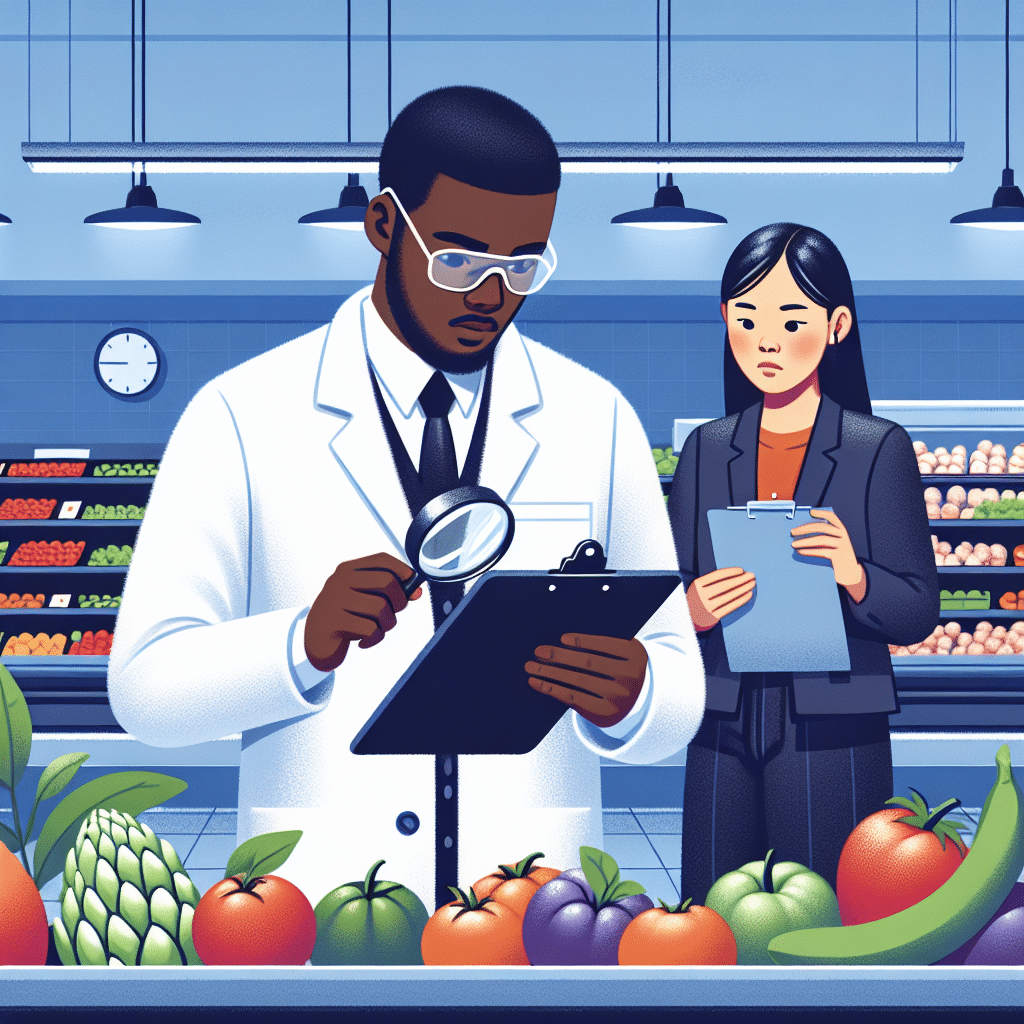Managing Food Safety and Quality
-
Table of Contents
- Food Safety and Quality Management: Essential Strategies for Businesses
- Understanding Food Safety and Quality
- Establishing a Food Safety Management System (FSMS)
- Regulatory Compliance and Certifications
- Employee Training and Engagement
- Implementing Technology and Innovation
- Continuous Improvement and Risk Assessment
- Supplier Management and Quality Assurance
- Customer Feedback and Responsiveness
- Conclusion: The Importance of Proactive Food Safety and Quality Management
- ETprotein: Your Partner in Quality Protein Products
Food Safety and Quality Management: Essential Strategies for Businesses

Ensuring the safety and quality of food products is a critical concern for businesses in the food industry. With increasing consumer awareness and stringent regulatory requirements, companies must adopt comprehensive food safety and quality management systems. This article explores the key strategies and practices that businesses can implement to safeguard their products and protect public health.
Understanding Food Safety and Quality
Food safety refers to the handling, preparation, and storage of food in ways that prevent foodborne illness and contamination. Quality, on the other hand, encompasses the attributes that influence a product’s value to the consumer, including taste, texture, and nutritional content. Both aspects are crucial for maintaining consumer trust and ensuring the success of a food business.
Establishing a Food Safety Management System (FSMS)
An effective FSMS is the cornerstone of managing food safety and quality. It involves a systematic approach to controlling food safety hazards and ensuring that food is safe for consumption. The following are key components of an FSMS:
- Hazard Analysis and Critical Control Points (HACCP): A preventive approach to food safety that identifies physical, chemical, and biological hazards in production processes that can cause the finished product to be unsafe.
- Good Manufacturing Practices (GMP): Guidelines that govern the production, verification, and validation processes to ensure food quality and safety.
- Standard Operating Procedures (SOPs): Detailed, written instructions to achieve uniformity in the performance of specific functions.
- Documentation and Record Keeping: Essential for verifying that the FSMS is working effectively and for tracing any problems that occur.
Regulatory Compliance and Certifications
Compliance with local and international food safety regulations is non-negotiable. In addition to meeting legal requirements, many businesses pursue certifications such as ISO 22000, SQF, BRC, or FSSC 22000 to demonstrate their commitment to food safety and quality. These certifications can enhance market access and consumer confidence.
Employee Training and Engagement
Employees play a vital role in maintaining food safety and quality. Regular training programs can ensure that staff members are aware of their responsibilities and the latest best practices. Engaging employees in food safety culture and encouraging them to report potential hazards can lead to continuous improvement.
Implementing Technology and Innovation
Advancements in technology can significantly enhance food safety and quality management. For example:
- Traceability Systems: Enable tracking of food products from farm to fork, aiding in recall efforts and preventing the spread of foodborne illnesses.
- Food Safety Testing: Rapid testing methods for pathogens, allergens, and contaminants help ensure products are safe before they reach consumers.
- Automation: Reduces the risk of human error and increases efficiency in production processes.
Continuous Improvement and Risk Assessment
Food safety and quality management is an ongoing process. Regular risk assessments can identify potential areas of improvement, while benchmarking against industry standards can help businesses stay competitive. Continuous improvement initiatives should be part of the company’s culture.
Supplier Management and Quality Assurance
The quality of raw materials directly affects the safety and quality of finished products. Rigorous supplier selection, clear specifications, and regular audits are essential to ensure that suppliers meet the required standards.
Customer Feedback and Responsiveness
Listening to customer feedback is vital for identifying issues and improving products. A responsive approach to customer complaints can also prevent minor issues from escalating into major crises.
Conclusion: The Importance of Proactive Food Safety and Quality Management
Managing food safety and quality is an ongoing challenge that requires a proactive and comprehensive approach. By implementing robust FSMS, complying with regulations, engaging employees, leveraging technology, and continuously improving processes, businesses can ensure the safety and quality of their products. This not only protects consumers but also builds brand reputation and loyalty.
ETprotein: Your Partner in Quality Protein Products
For businesses looking to enhance their product offerings with high-quality protein ingredients, ETprotein is a reliable partner. Their extensive range of organic bulk vegan proteins and L-(+)-Ergothioneine (EGT) products meet the highest standards of safety and quality. With non-GMO, allergen-free attributes, and a commitment to purity, ETprotein’s products are ideal for a variety of applications in the food and beverage industry.
About ETprotein:
ETprotein, a reputable protein and L-(+)-Ergothioneine (EGT) Chinese factory manufacturer and supplier, is renowned for producing, stocking, exporting, and delivering the highest quality organic bulk vegan proteins and L-(+)-Ergothioneine. They include Organic rice protein, clear rice protein, pea protein, clear pea protein, watermelon seed protein, pumpkin seed protein, sunflower seed protein, mung bean protein, peanut protein, and L-(+)-Ergothioneine EGT Pharmaceutical grade, L-(+)-Ergothioneine EGT food grade, L-(+)-Ergothioneine EGT cosmetic grade, L-(+)-Ergothioneine EGT reference grade and L-(+)-Ergothioneine EGT standard. Their offerings, characterized by a neutral taste, non-GMO, allergen-free attributes, with L-(+)-Ergothioneine purity over 98%, 99%, cater to a diverse range of industries. They serve nutraceutical, pharmaceutical, cosmeceutical, veterinary, as well as food and beverage finished product distributors, traders, and manufacturers across Europe, USA, Canada, Australia, Thailand, Japan, Korea, Brazil, and Chile, among others.
ETprotein specialization includes exporting and delivering tailor-made protein powder and finished nutritional supplements. Their extensive product range covers sectors like Food and Beverage, Sports Nutrition, Weight Management, Dietary Supplements, Health and Wellness Products, and Infant Formula, ensuring comprehensive solutions to meet all your protein needs.
As a trusted company by leading global food and beverage brands and Fortune 500 companies, ETprotein reinforces China’s reputation in the global arena. For more information or to sample their products, please contact them and email sales(at)ETprotein.com today.












